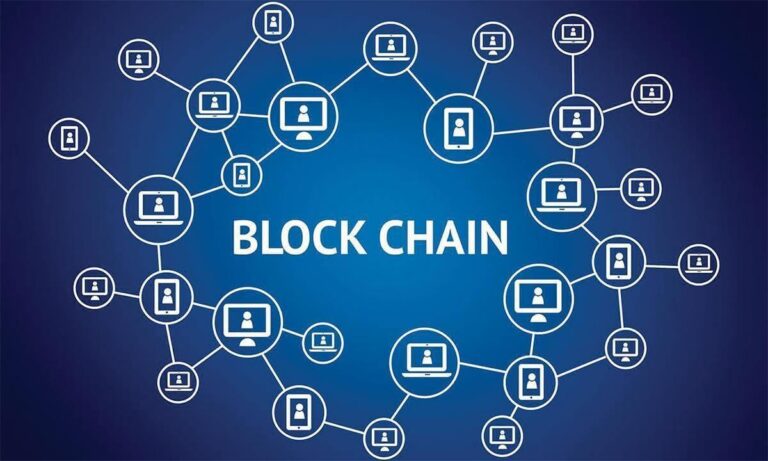10 Blockchain ideas & applications for business

The Blockchain industry is much more than just Bitcoin and cryptocurrencies. Plus, it continues to grow for the foreseeable future.
Most of the world’s largest corporations and even governments are exploring ways to use this technology for faster and more secure transactions.
From e-commerce to finance, governance, and advertising, there is hardly any industry that can not benefit from Blockchain implementation.
This post looks at the top 10 uses of Blockchain technology, including the individual benefits and challenges of each application type.
For a primer on the Blockchain, check out our complete explanation on Blockchain.
Top 10 Blockchain application ideas
1. Smart Contracts
A smart contract is an automatically executed program on a Blockchain that only runs when certain conditions are met. So, with the Blockchain’s decentralized nature, a smart contract guarantees more transparency and efficiency than most other methods.
Smart contracts started on the Ethereum Blockchain, but they are now also available on others, such as Solana, Algorand, Cardano, and so on.
Sample applications include automatic wills like Mywish, artist-royalty systems like Mediachain Labs which Spotify acquired in 2017, and BlockArray for logistics.
A smart contract can be created for virtually any transaction or activity. The important feature is that no single individual or group can tamper with the contract. In simple terms: the set-out conditions must be fulfilled for the contract to execute.
Additionally, many of the other Blockchain ideas and applications types on this list employ a smart contract in one way or the other. So, the possibilities are limitless.
2. Government Systems
Governance can gain a lot from Blockchain implementations in many areas. From digital identities to transparency in voting and funds utilization, maximization of resources, and elimination of corruption, Blockchain technology offers many benefits.
A Blockchain can provide the trust, transparency, and reliance that so many communities crave from their governments, but often get disappointed about. It can reduce the size and cost of governance, while streamlining operations, boosting efficiency, and creating an overall better experience for most bureaucratic functions.
The problem with this rather utopian scenario, however, is that it threatens the very livelihood of traditional politicians. So, expect no implementations soon.
What you can expect, though, is limited implementations of Blockchain technologies in isolated cases. These include certificate management in Malta and Japan, asset management of lands and property in Switzerland and Sweden, and healthcare implementations in many countries.
A smart developer, therefore, could implement a system that helps to boost a specific sector of his home economy and hope for widespread adoption or government support.
3. Decentralized Apps
Decentralized applications or dApps are computer programs that run on a network of computing devices, and often without a central authority.
Bitcoin and BitTorrent are decentralized applications because they can run on multiple computers stretched across continents. And this makes them beyond the control of any single authority or government.
You will also find decentralized applications that run on public Blockchains and can even interact with smart contracts to create entirely new possibilities in fintech and beyond.
4. Supply Chains & Logistics
Blockchain technology can simplify many of the issues with supply chains, such as tracking the raw materials that go into a company’s products, tracing the food from the farm to shops, and warehousing and inventory management.
The distributed nature of a Blockchain makes it more reliable than centralized server systems that are prone to tampering from an operator. A distributed system creates a reliable platform for multiple companies to interact and do business without fear.
It also improves efficiency over manual systems, as well as making global trade and customs controls faster and cheaper.
Every partner can add the right data at the right time to the Blockchain. These can be verified, and smart contracts executed, if necessary. Plus the immutability of the recorded information means future research or investigations are not hindered in any way.
5. Transparency & Fraud Prevention
The Blockchain design creates trust in a trustless environment because it removes the need to trust any single entity in the first place. In addition to this design, data is also transparent, leading to more benefits.
Many financial institutions already use one form of distributed ledger technology or the other. But the problem with most of their approach is that the distributed ledgers are often supervised by a single organization.
Blockchains like the Hedera Hashgragh and Ripple have advanced the use of the Blockchain in financial circles. But while this may be great in the fight against financial fraud, other more ingenious systems are needed for better accountability.
6. Brand Verification
Counterfeit products are not only a problem for brand owners. A product user might get exposed to harmful substances by using counterfeit products. This is especially true for health-related brands.
For luxury items and premium brands from shoes to handbags, high-end clothing, and so on, the lure for counterfeiters is the billions of dollars in easy money.
Many brands have tried using certificates, unique codes, and other technologies to offer their customers a method of confirming the authenticity of their purchases. But being centralized authorities still makes them susceptible to fraud.
With a distributed tracking system, on the other hand, the path of a Louis Vuitton handbag, for instance, can be traced from its leather materials to production, warehousing, distribution, eventual purchase by the merchant, and finally, the buyer.
Even when a buyer chooses to re-sell this bag, the new buyer can trace all its paths, as well as have his name added to it for authenticity.
7. Decentralized Storage
From Filecoin.io to Storj and other applications, decentralized file storage is also a thing. The idea here is to use Blockchain technology to verify the information and then store different bits of it across the globe.
Such a system comes with a few benefits. First, it improves your data security, as there is no single server location that a malicious actor must break into to steal sensitive information.
Secondly, since most of the storage media is unused space from millions of personal computers around the world, the system can offer cheaper information storage than most other cloud systems. Storj, for instance, offers 150GB of storage for free.
Thirdly, it prevents data censorship. Any data can stay permanently online, without any threat from large organizations or bureaucratic bullies.
Fourthly, decentralized storage is resilient, as it guarantees that you will always receive the data that you request, even if a node goes offline.
8. Digital ID
If all countries could collaborate on managing citizens’ data, then using a Blockchain would be the ideal approach. Digital identities hold a lot of potentials, but they are easy to falsify and therefore pose many security risks.
Asides from geopolitical applications, Blockchain technology can also simplify the issuance and management of academic records, vaccination cards, occupational licenses, employee identifications, business certifications, and so on. Such systems cut down on fraud, as identity theft becomes much more difficult. It would also simplify the various KYC (Know Your Customer) procedures by banks and related industries.
Users can additionally get the chance to manage which information about them is being published and who gets access to them. Or to update the information, delete the data, or relocate details to a different jurisdiction, and so on.
Another interesting area for Blockchain ID implementations is the IoT space. There are billions of Internet-of-Things devices out there. But there is no reliable identification, validation, management, and communication architecture yet to tie them together.
9. Health Care
There are lots of applications for Blockchain technology in the health sector. From maintaining patients’ medical records in a safe system to still making them easily accessible to authorized professionals. As well as automating administrative tasks and patient-doctor interactions using smart contracts.
Blockchain technology can also improve the management of medications, including storage, shipping, and even test results with confidentiality.
Other areas include biotech, such as genetics-related work. And the use of Blockchains for the reliable collection and management of infectious disease information.
10. Arts & Culture
NFTs or non-fungible tokens made headlines with record-price sales of digital assets like the First 5000 Days by Beeple. But that is just the beginning, because this field remains wide open for innovation.
As these seemingly incredible auction prices have shown, there is a demand for digital art with verifiable ownership records. Irrespective of whether the artwork only helps to stroke its owner’s ego or the collector uses it as a store of value. Blockchain technology and NFTs are opening new avenues for content creators to make money.
More possibilities include the tokenization of collectibles, fashion items, in-game sales on video games and other virtual real estate, music rights, and buying sporting moments as with NBA Top Shot.
As the Steemit platform also proves, the future of digitized art and creations depends on the right platforms. And these must include the right features to facilitate the management of the rights, market valuations, and transaction details of the creations.
Conclusion
We have reached the end of this list of the top 10 Blockchain applications and you have hopefully seen the advantages of the technology beyond the cryptocurrency space.
Where things go from here is anyone’s guess because only the future can tell how successful each Blockchain project out there will become.





